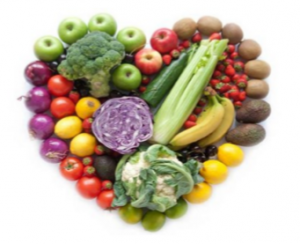
Constipation is a common problem. It means either going to the toilet to empty the bowels less often than usual, or passing hard or painful stools.
Constipation may be caused by not eating enough fibre or not drinking enough fluids. It can also be a side-effect of some medicines or related to a medical condition. In many cases, the cause is not clear. Many people only experience constipation for a short period of time with no lasting effects on their health.

Type 1, 2 or 3 on the Bristol stool chart show some level of constipation; Type 1 being the most severe. Note: there is a large range of normal bowel habit, from 2-3 times per day to 2-3 times per week. It is a change from your usual pattern and the difficulty and pain passing the stools that defines constipation. Although constipation is common, you can take several steps to prevent it, including making diet and lifestyle changes.
Fibre
Most adults do not eat enough fibre. Eating more fibre consistently in your diet will keep your bowel movements regular because it helps food pass through your digestive system more easily. Foods high in fibre also make you feel fuller for longer. Make sure you drink plenty of fluids to help your body to process the fibre. Although the effects of a high fibre diet may be seen in a few days, it may take as long as four weeks.
If you are increasing your fibre intake, it is important to increase it gradually. A sudden increase may make you feel bloated. You may also produce more flatulence (wind) and have stomach cramps.
Adults should have approximately 30g of fibre a day. Constipation can be eased and prevented by eating more fibre such as wholemeal foods and eating five portions of fruit and vegetables each day. You might like to include fruit that contain sorbitol (a naturally occurring sugar that has an effect of softening your poo) such as apples, apricots, gooseberries, grapes (and raisins), peaches, pears, plums, prunes, raspberries and strawberries.

Fluids
Make sure that you drink plenty of fluids to avoid dehydration and steadily increase your intake when you are exercising or when it is hot. About 8-10 cups per day of water or other fluids should be each day . As a start try drinking a glass of water 3-4 times a day in addition to what you normally drink . Try to cut back on the amount of caffeine, alcohol and fizzy drinks that you consume.
Toilet Habits
Never ignore the urge to go to the toilet. Ignoring the urge can significantly increase your chances of having constipation. The best time for you to pass stools is first thing in the morning, or about 30 minutes after a meal. When you use the toilet, make sure you have enough time and privacy to pass stools comfortably. A footstool can help maintain a good posture.
Exercise
Keeping mobile and active will greatly reduce your risk of getting constipation. Ideally, do at least 150 minutes of physical activity every week. Not only will regular exercise reduce your risk of becoming constipated, but it will also leave you feeling healthier and improve your mood, energy levels and general fitness.
Laxatives
Laxatives can also be used to treat constipation but these should only be needed if the dietary and exercise measures above do not work. There are several types of laxatives which work in different ways and the time they take to work can vary. Laxatives can be bought from your pharmacy, supermarket or store but you should visit your GP if your symptoms persist. More information on constipation can be found by visiting the NHS website.
Patient Information Leaflet Management of Short Term Constipation In Adults
Medicines Management and Optimisation Team – Approved 16th January 2020
Review date 16th January 2022
Version 2.0

